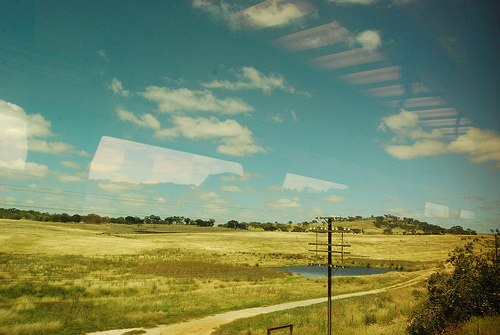A few years ago a friend and I planned (and executed) a three-week trip to South Africa. The main attraction was a week-long safari we had purchased at a charity auction, and so our task was to plan the itinerary around this safari.
Vagabondish is reader-supported. When you buy through links on our site, we may earn a small affiliate commission. Read our disclosure.
“Well,” said my friend, taking a deep breath. “I’d really like to see the gorillas in Rwanda. And maybe we can pop over to Kenya as the east coast fascinates me. Ooh! Ooh! — and we can’t miss Victoria Falls while we’re at it,” she rambled excitedly.
“What about South Africa?” I asked, dazed and pulling out a map to calculate some distances and travel times.
“Certainly we should travel along the south coast to see the wineries and whales, and the flowers north-east of Capetown are apparently beautiful, and I’d love to spend some time off the beaten path in the mountains too on the way to our safari.”
“Um … how long do we have for this trip again?” I asked, bewildered and overwhelmed.

On the Move © millicent_bystander
And so the conversation went, back and forth citing all the things we’d like to cram into our first trip to Africa, and weighing the reality of what was possible. Upon looking closely at some of the distances, “popping over” to Kenya from South Africa (or even Rwanda) was not going to be as easy to do as it was to say. Africa is a bloody huge continent, and in many cases traveling even a few hundred miles there is a much slower process than traveling the same distance in North America or Europe.
Poorly maintained roads (many of which are unpaved), road blocks, and unnerving border crossings defy even adept drivers. In flying, the availability of direct flights and connections to necessary ground transportation are few and far between. And getting off the beaten path is an exercise in having a lot of time on your hands, because nothing happens quickly there.
Once we realized that “popping over to Kenya” was way harder than “popping over to New York from L.A.”, we had to reevaluate what we were going to accomplish.
In the end we decided that if we had only three weeks in Africa and since South Africa in particular was the primary destination, that we should really see South Africa and save the rest of the (albeit deserving) destinations for another trip. We simply couldn’t see an entire continent or even a part thereof in just three weeks. Coming away from the trip and feeling that we “did” South Africa would give us the greatest sense of accomplishment, rather than spending a large portion of our trip in airports, on buses, and paying extravagant sums of money for visas that we’d only be able to use for a matter of days.

Train Ride, Australia © nicolas.boullosa
But I know other people who would have planned the trip quite differently. Their rationale would have been to take full advantage of the long-haul flight to Africa (or Asia or Europe), and see as much as they could of the continent, even if they had to and gloss over many things to meet a busy travel itinerary. Granted, in places like Europe it is a little easier to hit multiple countries in a few weeks, these travelers would try to cram every little bit they can into their trip, convinced that an afternoon off is an afternoon wasted.
In a recent series of articles around planning your trip, Christopher strikes a balance between setting an itinerary to take full advantage of your time away and leaving yourself open to what you’ll find at your destination. It helps to know what kind of traveler you are, how and why you travel, and what you’ll be interested in seeing to understand how long you may be intrigued by any one place. And of course, researching your trip ahead of time is invaluable in this process.
In addition, here are a few quick tips to help you navigate the world of navigating the world:
Research Visa Requirements
If you want to hop over the border to another country, first check the costs and requirements for visas. If a day trip over the border will cost you $100 just to see the place, you may want to reconsider now, before getting there and finding out the hard way. Not to mention saving the possible embarrassment of discovering that you had to apply for the visa in advance.
Pull out the Map
Although Africa may seem small, popping over to Kenya from Capetown is no small feat. A quick look at a map may help you discover that Yellowknife isn’t very close to Vancouver after all (something a fellow hostel-mate hadn’t quite figured out before she visited Canada from afar), or that Perth is quite out of the way of your Brisbane to Melbourne itinerary (guilty as charged).
Decide What’s Important
Are there specific places you want to see or things to do that the rest of your trip has to be planned around? Or do you just want to get a general feel for the culture, the people, and the rhythm of your destination? Once you prioritize your trip, you can plan the rest of your time around your main goal.
Do You Have Vacation Time Left Over to Recover from Your Vacation?
If not, then maybe you’ll want to build in some rest days, even though it may mean missing out on a museum or two.
What Do You Consider to Be a Waste of Your Time?
Some people abhor spending too much time in airports, despite the fact that it’s often the quickest way of getting from A to B. They would rather take the slow bus and get a feel for how the locals live and travel. Others might think an afternoon spent in a café reading the local paper, guidebooks, and writing in their journal is a waste of a perfectly good sight-seeing day on the road. Decide what activities make your skin crawl and engineer your trip to keep them to a minimum or avoid them altogether.
Decide what activities make your skin crawl and engineer your trip to keep them to a minimum or avoid them altogether.
As I learned in Africa, there is something to be said for planning your trip and maybe leaving a place or two off the itinerary in favor of really getting to know one particular place better. But not everybody shares the same sentiment, so knowing how busy you like to be on your trip will help you get the most out of your travel experience. Africa will always be there in one form or another; I’ll see the east coast next time.


